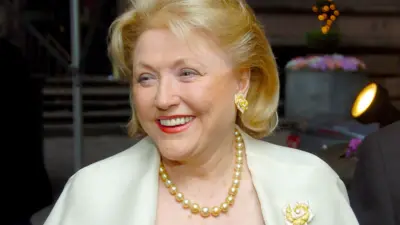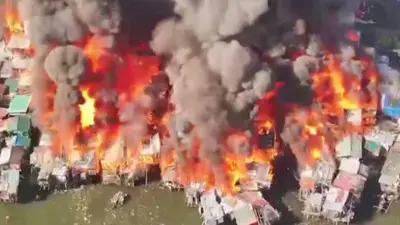We've updated our Privacy and Cookies Policy
We've made some important changes to our Privacy and Cookies Policy and we want you to know what this means for you and your data.
Italian government's praise for El Alamein troops sparks fascism row
Image source, EPA
- Author, Alex Loftus
- Role, │╔╚╦┐ý╩Í News
The Italian government has been criticised for praising fascist soldiers who fought in El Alamein, on the 82nd anniversary of the World War Two battle.
In a social media post, the defence ministry said that the troops who took part "sacrificed their lives for our freedom", describing the Italian and Nazi loss to the allies in North Africa as "heroic and tragic".
Fascist dictator Benito Mussolini was in power in Italy at the time El Alamein was fought in 1942.
Opposition parties decried the comments, with the Five Star Movement party saying it was "inopportune" to say Italian troops had fought for freedom.
Prime Minister Giorgia Meloni heads the right-wing governing coalition and is also the leader of the far-right party Brothers of Italy (Fdl).
Fdl is a direct political descendant of the Italian Social Movement, which was formed by members of Benito Mussolini's Fascist Party after the war.
Meloni has insisted her party's modern incarnation is far from its origins, saying it does not tolerate racism, antisemitism or nostalgia for Italy's time under Mussolini.
Under Mussolini's fascist rule, Italy allied with Nazi Germany during World War Two and fought alongside its troops during the North African campaign.
The second battle of El Alamein in Egypt - which began on 23 October 1942 - is considered the first major victory for Allied forces in World War Two and a key turning point in the overall conflict.
Thousands of Italian soldiers were killed or captured, with the defeat denying the Axis powers military dominance over North Africa.
Also marking the anniversary of the start of the battle, Paola Chiesa, an Fdl politician, said the "heart of the nation" was at El Alamein.
The Five Star Movement contested the government's claim that Italian soldiers had fought for freedom and said the 17,000 killed troops had to be honoured only as insofar as they were "victims of the warmongering and colonialism of the fascist regime".
At the time, Italy had several colonies in northern Africa, including in Eritrea, Somalia, Libya and Ethiopia.
Image source, Getty Images
Meloni's party has previously faced criticism for its failure to condemn celebrations of Italy's fascist past.
In January, Meloni remained silent after hundreds of men were seen giving fascist salutes at a rally in Rome.
Elly Schlein, leader of the centre-left Democratic Party (PD), said at the time that the constitution made it clear "neo-fascist groups must be disbanded".
Meloni says Fdl should not be called "far-right". In April she laid a wreath on Italy's National Liberation Day, which celebrates its independence from Nazi Germany and the end of fascism.
In July, she said she was "angry and saddened" by reports of members of the party's youth wing making fascist salutes, as well as using racist and antisemitic language.
But critics note that the party still bears the same three-coloured flame logo used by neo-fascists after the war.
Top Stories
More to explore
Most read
Content is not available








